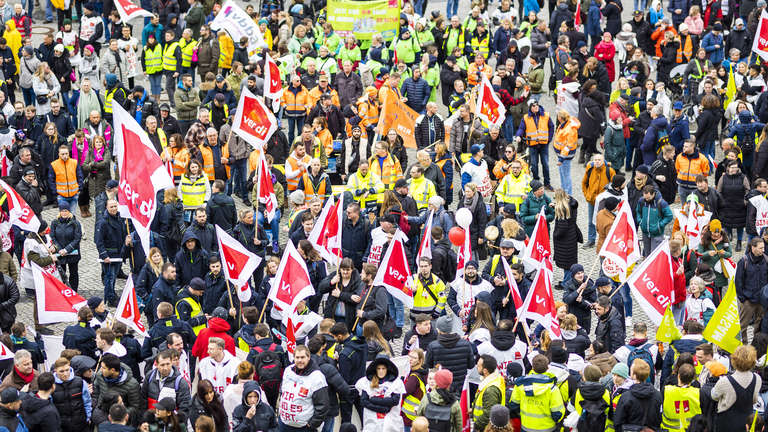Local and long-distance transport is one of the most important sectors for the German economy. Every day, almost 14 million people have to commute to another part of the country to be exploited by the bourgeoisie. Masses of goods are transported from one place to another via the rails and highways. The bourgeoisie is therefore dependent on the smoothest possible flow of traffic. This is also reflected in the more than 9 million people employed in the transport industry. However, the workers see nothing of the approximately 48 billion euros in revenue that Deutsche Bahn (German Railway Company) alone recorded in 2022. They suffer from inflation and price increases.
That's why there have been repeated strikes and traffic cancellations in many German cities recently. For example, employees of the Munich subway went on strike in early March. In Bremen, no buses or trains ran on March 3. And in February and March, there were several flight stoppages in Hanover and Bremen due to the warning strikes.
But now the unions Verdi and EVG (union of railroad and transport workers) have extended the strikes for one day to the whole country. They are demanding a wage increase of 12 percent in the negotiations with the railroad companies or the federal and state governments. According to EVG, this affects 180,000 Deutsche Bahn employees. Previously, the letter carriers were able to win an average wage increase of 11.5 percent under the threat of strikes.
However, these demands are too low, considering that prices for food and non-alcoholic beverages have risen by 20.7 percent since February 2022, according to Statista. For electricity and gas, prices have even increased by 32.2 percent compared to the same month last year. In comparison, the 12 percent seems puny, and it cannot compensate for the price increases.
Even this demand is too much for Deutsche Bahn; they are only offering a gradual increase of 5 percent and a bonus of 2,500 euros until August 2024. Nevertheless, the increase in strikes is a positive sign, as it shows a growing self-confidence among the workers.
In addition to the insufficient demands to compensate for inflation, a general problem is evident in the German right to strike. In Germany, it is permitted to strike, but only if the strike is called by a trade union. All other strikes are called wildcat strikes and are prohibited; participants in a wildcat strike are summarily dismissed. However, the fact that the union bosses cannot represent the workers at all becomes clear when you look at their salaries, which are often between 100 and 200 thousand euros. This is how the far too low wage proposals come about.
Moreover, in Germany, by law, a strike can only be about the content of a collective agreement with the bourgeoisie. Striking for political goals is forbidden. Thus, similar to elections, decisions can only be made about the conditions under which exploitation takes place, but not against exploitation in general.











